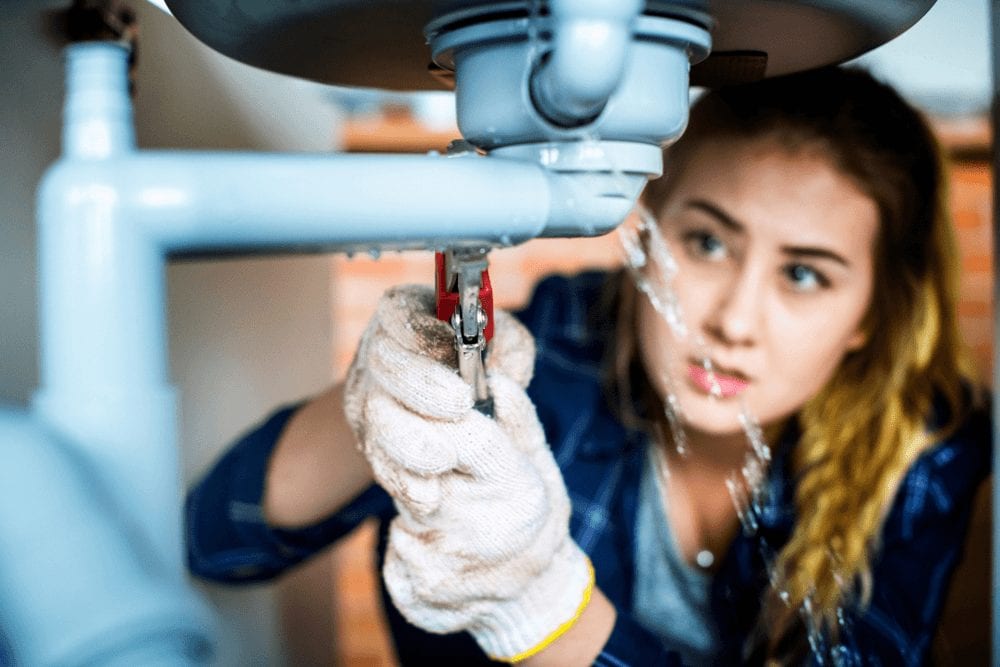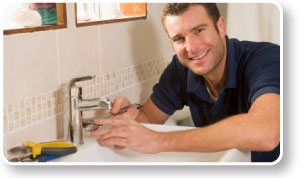Rates
What're your thoughts about Don’t Let an Earthquake Damage Your Plumbing?

The secret to durable home appliances, unsurprisingly, is proper upkeep. There's no set rule that can guarantee your plumbing appliances a long wear, however you can stop unnecessary damage and also fixings by avoiding negative plumbing habits.
You need to stop doing these 6 points else you'll keep calling your plumber over for minor faults.
Purging everything
Yes, your bathroom drainpipe results in the drains, yet that does not imply you ought to unload just anything down the drain. Several 'flushable' materials are actually excellent obstruction beginners, for example dental floss. Asides keeping evident non-flushable products like cables as well as plastics out of your bathroom, you ought to additionally avoid flushing cotton buds, menstruation items, wipes, daipers and also prophylactics down the bathroom drain.
DIYing everything
With plumbing, a stitch in time actually does save nine. You can prevent a fullblown plumbing emergency by calling your plumber at the correct time.
You may have learnt a couple of plumbing hacks from your father, yet you should know where to draw a line as well as call an expert. For instance, you may be able to deal with a blockage on your own, however you should not try to alter a pipeline. You could mismatch pipelines or overtighten a screw, triggering even more injury and damages than you thought. Calling a plumber is a safe and economical choice.
Using too much drain cleaner
Utilizing a drain cleaner more than once or twice a month is an indication that something severe is going on within your pipelines. Currently, as opposed to encountering the major concern, you choose a quick fix; a carbonated drainpipe cleaner. Rightfully, a drainpipe cleaner will care for the obstruction, yet at what price?
The chemicals in a drain cleaner can quicken the rust of your pipes. Include that to whatever underlying trouble is creating the blockage as well as you might have to a major problem on your hands.
If you experience way too many blockages, call your emergency plumber instead of making use of a drainpipe cleaner.
Pouring grease in the sink
We know effectively disposing of grease after a hearty meal is a discomfort. But just putting it down the tubes can do lasting damage to your pipelines. "The fat and grease can block your drainpipe severely enough to require you to call a plumber," clarifies Dawson. "Plumbing works best when it's well taken care of-- not abused with oil."
Not transforming your dishwasher hose pipes
One very easy method to make certain that you utilize your dishwasher for years is to change the tube a minimum of as soon as in 5 years. This also requests washing equipment hose pipes.
Gradually, food bits, soap and also oil can develop blockages within your pipes. Replacing them in a timely manner will certainly protect against any type of presure accumulate that can harm the interior workings of your dish washer or cleaning equipment.
An enhanced steel entwined pipe does a terrific job of lengthening your device's use time.
No winter preventative measures
Extreme climate condition are bad for your pipelines, especially if they're made from steel. You need to insulate your subjected pipelines, and also your water container, even if you have a hot water heater. You should also turn off your garden tube valve and any other exterior water networks. These networks are electrical outlets for chilly; you pipes can start to freeze from outside if you don't.
How Hard Water Damages Your Plumbing and Appliances
Hard water is no stranger to most households across America. This silent invader affects 85% of homes in the United States every day, wreaking havoc on pipes, plumbing fixtures, and water-using appliances.
Should you become a victim of hard water, you must understand exactly what it is and how it affects your plumbing and appliances. This will help you determine the correct measures to put in place to fix or prevent any problems that may arise.
First off, what exactly is “hard” water?
In short, “hard water” is used to describe water that contains relatively high amounts of dissolved minerals, primarily calcium and magnesium, and a host of trace metals. When rainwater falls from the sky (usually in a pure form), it absorbs the hardness minerals from rocks and soil, which changes it from soft to hard water.
What about my plumbing and appliances?
Mineral deposits from hard water can cause buildup on tubs, shower, sinks, faucets. But that’s only a small scratch of the surface. Those minerals can gradually build up inside pipes, fixtures, water heaters, washing machines, and dishwashers. Once they accumulate in those areas, they can clog pipes and create major problems throughout your plumbing system, from reduced water flow to increased pressure on pipes and fixtures.
This limescale buildup might affect some appliances, causing them to operate less efficiently and wear down faster. And the result? Higher energy bills, more (costly) plumbing replacements and repairs, and damaged appliances.
Keep in mind that certain types of plumbing are more susceptible to clogging than others. Copper, PVC, and PEX pipes are more resistant to hard water buildup and corrosion, but they can still get clogged or completely blocked by scale deposits.
How do I know if my water is hard?
White limescale buildup on plumbing fixtures (or any of the other signs mentioned above) is usually a good sign that your water is hard. If you suspect that you have hard water, you can simply shake up a small amount of dish soap and water in a closed container. If the mixture doesn’t create a lot of suds, you probably have hard water.
The most precise method, however, is to test your water with a DIY test kit (sold online or at local home centers or hardware stores) or send a water sample from your tap to a local lab to be tested. Be sure that you understand the nature of the test, the water condition being measured, and the significance of the test results.
Another way to obtain an estimate of water hardness is to check your annual water quality report to see if your water provider has reported any instance(s) of water hardness in your water supply.
https://www.springwellwater.com/how-hard-water-damages-your-plumbing-and-appliances/

Do you like reading about Can Hard Water Ruin Your Appliances?? Create a remark down the page. We'd be delighted to listen to your opinions about this post. In hopes to see you back again soon. For those who enjoyed our blog entry please do not forget to share it. I cherish reading our article about Can Hard Water Ruin Your Appliances?.
Check Us Out